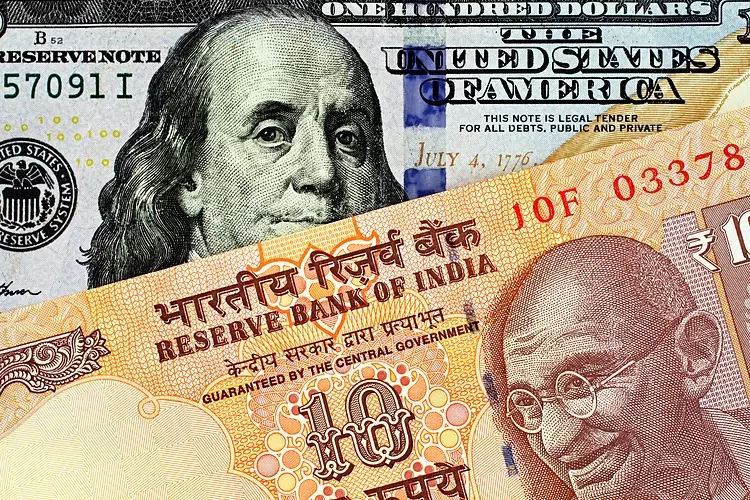The Indian Rupee started off the new week on a positive note, showing strength despite the stronger US Dollar. This resilience can be attributed to various factors such as the positive economic growth outlook in India, significant foreign inflows into Indian markets, and expectations of continued policy reforms following the general election results.
One of the key drivers of the INR’s upward momentum is the sustained economic growth outlook in India. The country’s economy has been showing resilience and is expected to continue growing, which attracts foreign investors and supports the local currency.
Additionally, significant foreign inflows into Indian markets have played a crucial role in strengthening the INR. These inflows indicate confidence in the Indian economy and its growth prospects, driving demand for the rupee.
Despite these positive factors, there are also challenges that the INR faces. The rise in crude oil prices is a significant concern, as India is the third-largest consumer of crude oil in the world. Higher oil prices put pressure on the country’s current account deficit and impact the rupee’s value.
Investors are closely watching key market events that could impact the INR’s performance. The US Chicago Fed National Activity Index for May and Dallas Fed Manufacturing Business Index for June are set to be released, along with a speech from the Fed’s Mary Daly. These events could provide insights into the US economic outlook and influence the USD/INR exchange rate.
Additionally, the Reserve Bank of India’s Monetary Policy Committee (MPC) minutes highlighted the need for continued disinflationary measures to maintain price stability. The central bank’s focus on inflation targeting and policy reforms will be crucial in shaping the INR’s trajectory.
The first reading of India’s HSBC Manufacturing PMI data for June showed a rise to 58.5 from 57.5 in May, reflecting positive growth in the manufacturing sector. The Services PMI also improved to 60.4 in June, beating market expectations.
In comparison, the US S&P Composite PMI for June climbed to 54.6, indicating growth in the US economy. However, US Existing Home Sales in May fell below expectations, signaling a contraction in the housing market.
On a technical note, the USD/INR pair maintains a bullish bias on the daily chart, supported by the 100-day Exponential Moving Average (EMA). The 14-day Relative Strength Index (RSI) suggests that the pair is likely to find support and maintain its upward momentum.
In terms of price levels, the immediate resistance for USD/INR is at 83.75, with potential upside towards the 84.00 psychological level. On the downside, support levels are seen at 83.43 and the crucial 83.30-83.35 zone.
The Indian Rupee continues to show strength despite external challenges and market volatility. The positive economic outlook, foreign inflows, and policy reforms are key factors driving the INR’s performance. With upcoming market events and technical indicators in focus, investors will closely monitor the currency’s movements in the coming days.

